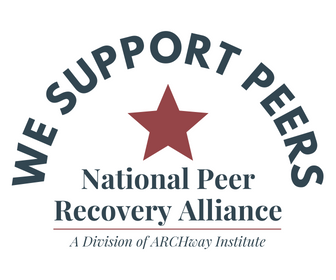As of Friday, April 3, 2020, there were 239,279 diagnosed cases of COVID-19 and 5,443 deaths due to the virus in the United States alone. This global pandemic has led to major political, social and economic consequences, and a great deal of uncertainty remains over what’s to come in the weeks and months ahead.
Missouri’s addiction recovery community has also been feeling the impacts of COVID-19, creating new difficulties and concerns for treatment providers, mental health professionals and those in and seeking recovery.
Effects on Treatment
Amid the outbreak, treatment agencies have had to suspend and shut down certain services, with most detox and inpatient facilities closing their doors. Some outpatient facilities have stopped accepting new clients, while group therapy and individual counseling sessions are being cancelled or moved to telehealth.
Given the already compromised immune systems of their clientele, treatment agencies have no choice but to exercise extreme caution. However, closing their doors, even temporarily, may be detrimental—not just for those in and seeking recovery, but for programs’ financial stability, even long after the outbreak subsides.
Effects on Recovery Housing
Recovery housing providers are also feeling the ripple effect of COVID-19. In an effort to minimize the spread of the virus, access to recovery housing has become more limited.
Recovery homes are in a particularly challenging position, with many residents continuing to work at essential businesses like grocery stores and restaurants. People are coming and going, putting their fellow residents at risk for increased exposure. At the same time, other residents are losing their jobs due to layoffs, jeopardizing their ability to pay for rent, food, transportation and other basic needs.
In light of these complications, housing providers are stretching their budgets to purchase food and other essential items for their residents. Some have even had to invest in additional technology to keep up with treatment agencies as they shift to telehealth services. And, given that these houses are often in lower income areas, residents fear that they’ll be impacted by increased crime rates.
Effects on Peer Support Services
Certified peer support specialists, who use their personal recovery experiences to support and advocate for others navigating the treatment system, are also being impacted by the pandemic. Peers play many important roles within the recovery community, working in hospital settings, outreach, inpatient and outpatient facilities, recovery housing and connecting clients with the community resources they need for long-term recovery.
With so many of these services being suspended, limited or moved to telehealth, outreach coaches are seeing a decrease in new referrals. This means fewer individuals are requesting these services, or that hospitals, facing an influx of patients with symptoms of COVID-19, aren’t able to provide the same number of referrals that they normally would. Both scenarios are cause for concern.
Peer support specialists working in treatment agencies are now being utilized to facilitate telehealth between clients and doctors, meaning less time to engage with their clients themselves. Meanwhile, peers in recovery housing are spending more time cleaning and sanitizing—a critically important and necessary task, but one that takes away from time spent meeting with their residents one-on-one. Peers are doing their best to balance their changing workloads, with many offering virtual meetings, but are working harder than ever to maintain the culture of their houses and prevent relapses among residents.
Across the treatment system, peer support specialists are reaching out to clients by phone as much as possible. However, since many of our clients do not have phones, this arrangement is not without challenges. A peer could sit in a room all day, calling one client after another, and only successfully reach a dozen. And, in many cases, there’s just no substitute for face-to-face interaction.
When peers are able to get in touch with their clients, increased feelings of fear and anxiety are the norm. Clients are not just scared of contracting COVID-19; they fear relapse, unemployment, financial instability and losing access to the treatment services and resources they’ve come to rely on. Their routines are being disrupted. They are bored and feeling isolated—and the last thing someone early in recovery needs is to feel isolated or alone.
Peer support specialists care deeply for their clients. We worry about them, and our concern has certainly been heightened during these stressful times.
On the Other Hand…
Despite the many challenges the recovery community has encountered in the age of COVID-19, we have also been encouraged by what has been done in such a short period of time to support Missourians in and seeking recovery. Treatment agencies, recovery housing providers and peer support specialists across the state are doing the best they can for their clients, and as they become more comfortable with the new technology and the new climate of the field, we are hopeful that services will increase.
Now more than ever, there is no doubt about the level of dedication of those working in addiction treatment and mental health. These individuals will always strive to do more in support of their clients, and they are coming together to do so, even in the most unprecedented and uncertain of circumstances. Doctors, counselors, peers support specialists and administrative staff are uniting to help one another and to help their clients at a time when it is needed most, and we will get through this together.
Written by Emily Jung
Emily Jung is a peer support specialist and founding member of MO-PROS.

